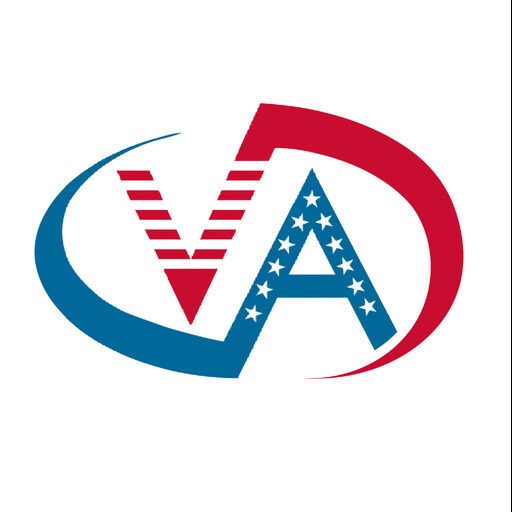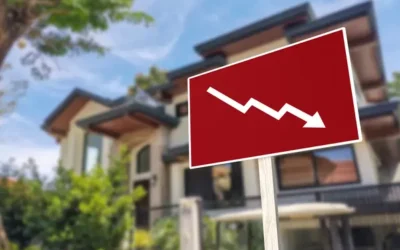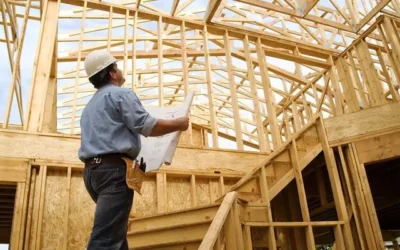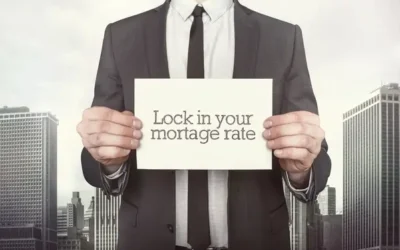As we move through the latter part of 2026, mortgage rates have unexpectedly taken a downward turn.
This decline presents a favorable landscape for prospective homebuyers and those considering refinancing.
In this article, we’ll examine the top five reasons mortgage rates are dropping and explore what it means for buyers today. With current data and expert insights, we’ll also answer some of the most pressing questions about mortgage rates and their impact on the housing market.
Current Mortgage Rates and Recent Declines
Mortgage rates have seen a notable decline in recent months, creating a more favorable environment for homebuyers. After reaching a peak in 2023, rates have steadily decreased throughout 2026 due to a combination of Federal Reserve actions and reduced economic pressures. As of October 2026, the average rate for a 30-year fixed mortgage is around 5.99%, down from a peak of 7.25% in late 2023.
The decrease in mortgage rates translates to significant savings for buyers, especially for those locking in long-term financing. This decline has also influenced buying behavior, as lower rates make homeownership more affordable. Additionally, lower monthly mortgage payments may allow buyers to consider homes in higher price ranges or to save more over the lifetime of the loan.
Recent Trends in 30-Year Fixed Mortgage Rates
| Date | Average 30-Year Fixed Mortgage Rate |
|---|---|
| December 2023 | 7.25% |
| March 2024 | 6.85% |
| July 2024 | 6.35% |
| October 2024 | 5.99% |
This recent rate drop has brought the 30-year fixed mortgage rate to its lowest level in over a year, providing substantial savings potential. For example, a 1% reduction in the mortgage rate on a $300,000 loan can save a borrower approximately $150 per month on their mortgage payment, totaling nearly $54,000 in interest savings over a 30-year term.
“This trend of declining rates is a rare opportunity for buyers to secure affordable financing in an otherwise costly market,” notes Emily Dawson, Senior Loan Consultant at PrimePath Mortgage Services.
Understanding the Decline in Mortgage Rates
The decline in mortgage rates is influenced by several factors, ranging from federal policies to market demand. Lower rates can help reduce monthly mortgage payments, making homeownership more accessible to many buyers. Below, we detail the top five reasons for this drop.
1. Federal Reserve Actions
The Federal Reserve plays a significant role in influencing mortgage rates. Recently, the Fed has eased its rate hikes due to cooling inflation, resulting in a drop in mortgage rates.
- Easing Inflation Pressures: When inflation rates are high, the Fed tends to raise interest rates to curb spending. But with inflation slowing in 2026, the Fed has held off on additional hikes, helping mortgage rates to decrease.
- Lower Consumer Borrowing Rates: As the Fed adjusts its policies, the impact ripples through the economy, allowing banks to offer lower mortgage rates.
“The Federal Reserve’s recent hold on rate increases has been a key factor driving mortgage rates down,” says John Stevens, Mortgage Analyst at LendingPro Solutions. “It’s a favorable shift for buyers, as it makes financing more affordable.”
2. Decreased Demand in the Housing Market
A slowdown in buyer demand has also contributed to declining mortgage rates. As demand weakens, lenders may reduce rates to attract more borrowers.
- Economic Uncertainty: Buyers are cautious due to economic uncertainties, leading to a lower demand for homes.
- Rising Affordability Concerns: High property prices have deterred potential buyers, putting downward pressure on mortgage rates as lenders aim to reignite interest.
Recent Demand Trends in the Housing Market
| Month | Buyer Demand Index | Median Home Price |
|---|---|---|
| January 2024 | 105 | $410,000 |
| April 2024 | 98 | $425,000 |
| July 2024 | 92 | $415,000 |
| October 2024 | 89 | $416,000 |
3. Global Economic Factors
Global economic uncertainties, including international trade tensions and slower growth in other economies, have affected U.S. mortgage rates.
- Lower U.S. Treasury Yields: Treasuries are often seen as safe investments, and with rising global uncertainties, demand for them has increased. This demand lowers yields, subsequently influencing lower mortgage rates.
- Global Trade Slowdown: With slower trade and reduced GDP growth globally, mortgage rates in the U.S. have been indirectly affected.
“Global economic shifts often influence our domestic mortgage rates. Lower treasury yields, for instance, are a response to reduced global growth,” states Laura Kim, Chief Economist at Mortgage Market Insights.
4. Mortgage Market Competition
In an effort to attract more borrowers, lenders are offering competitive rates.
- Increased Lender Competition: With a smaller buyer pool, lenders compete by offering lower interest rates to attract borrowers.
- Special Offers: Some lenders are providing rate discounts and reduced fees, especially for first-time buyers.
5. Seasonal Market Trends
Historically, the housing market sees a decrease in activity during fall and winter, leading to reduced rates as a strategy to stimulate demand.
- Fall and Winter Slowdown: Many families choose to avoid moving in colder months, resulting in less demand.
- End-of-Year Lender Promotions: To hit annual targets, lenders may offer lower rates and special promotions in the last quarter.
Average Mortgage Rates by Season (2026)
| Season | Average 30-Year Fixed Rate |
|---|---|
| Winter | 6.5% |
| Spring | 6.75% |
| Summer | 6.8% |
| Fall | 5.9% |
What Does This Mean for Buyers?
The current dip in mortgage rates provides potential savings for new buyers and those refinancing. Lower rates result in reduced monthly payments, which can allow buyers to consider more expensive properties within their budget.
- Affordability: With decreased rates, more buyers can qualify for loans, allowing them to enter the market at a lower cost.
- Opportunity for Refinancing: For current homeowners, this environment offers a chance to refinance at a lower rate, potentially saving thousands over the loan term.
“This period is highly advantageous for both first-time buyers and those refinancing,” adds Sarah Lawson, Senior Financial Advisor at Future Home Loans. “It’s a rare opportunity to lock in lower costs in an otherwise expensive market.”
How to Take Advantage of the Current Market
For those ready to buy, understanding key strategies can help you capitalize on these conditions:
- Get Pre-Approved: Start with a mortgage pre-approval to know exactly how much you can afford.
- Shop Around for Rates: Compare offers from multiple lenders, as rates can vary.
- Consider Long-Term Costs: Look beyond the rate; consider loan terms and fees for a complete view of costs.
Frequently Asked Questions (FAQs)
Why are mortgage rates dropping in late 2026?
Mortgage rates have decreased due to Federal Reserve actions, reduced demand, and global economic factors.
How much can I save on my monthly payment with lower mortgage rates?
On a $300,000 home loan, a 1% reduction in the mortgage rate could save about $150 per month.
Should I buy a home now with these lower rates?
If you’re financially prepared, now could be a good time to buy due to lower rates and potentially favorable buying conditions.
Are lower mortgage rates likely to continue into 2026?
Experts predict rates may rise again in early 2026 if inflation or economic conditions change.
What should I consider when comparing mortgage lenders?
Look at the interest rate, lender fees, and loan terms to find the best overall package.
Is now a good time to refinance my mortgage?
Yes, refinancing now could lower your monthly payments and save on interest costs if rates increase again in 2026.
How does the Federal Reserve impact mortgage rates?
The Federal Reserve sets short-term interest rates, which indirectly influence long-term mortgage rates through lender cost adjustments.
Will competition among lenders keep rates low?
Competition could help keep rates competitive in the short term, especially with fewer buyers in the market.
What Credit Score Do I Need for a VA Loan?
The Department of Veterans Affairs does not set a minimum credit score for VA loans. Instead, the VA backs a portion of the loan, which reduces the lender’s risk. This guarantee allows for more flexible credit requirements compared to conventional loans. However, each lender sets its own credit standards, typically ranging between 580 and 640 for VA loans.
- Why Credit Matters: Lenders use credit scores to assess the risk of lending. Higher scores indicate responsible borrowing and may qualify Veterans for lower rates, while lower scores may require additional considerations.
Minimum Credit Score Guidelines from Leading Lenders
Here’s a general breakdown of the typical credit score requirements by tier among various mortgage lenders offering VA loans:
1. High-Score Applicants (700+)
- Approval Likelihood: Very high, with some of the best interest rates.
- Typical Requirements: Fewer additional documents or compensating factors.
- Key Insight: “For Veterans with scores above 700, the loan approval process is usually seamless, with very favorable terms,” notes Sarah Miles, Senior Loan Officer at Hero Home Finance.
2. Moderate-Score Applicants (620-699)
- Approval Likelihood: High, with competitive interest rates, though they may be slightly above those offered to high-score applicants.
- Typical Requirements: Lenders may request extra documentation or proof of stable income.
- Expert Perspective: “For Veterans in the moderate range, good terms are achievable, but there may be a slight adjustment in the interest rate,” explains Tom Levin, Credit Specialist at Valor Lending Solutions.
3. Low-Score Applicants (580-619)
- Approval Likelihood: Possible but more challenging, with potentially higher rates or compensating requirements.
- Typical Requirements: Some lenders may require lower debt-to-income ratios, proof of savings, or cosigners.
- Quote: “Veterans with scores around 600 still have options but may face stricter requirements from lenders,” says Anna Brown, Head of Veteran Loan Programs at Patriot Mortgage Group.
| Credit Tier | Score Range | Likelihood of Approval | Interest Rate Impact |
|---|---|---|---|
| High | 700+ | Very high | Best rates available |
| Moderate | 620-699 | High | Competitive, slightly above best |
| Low | 580-619 | Possible | Higher rates, stricter conditions |
How Credit Scores Affect VA Loan Terms?
Higher credit scores can significantly improve the terms Veterans receive, while lower scores may impact monthly costs and overall affordability.
- Interest Rates: A higher credit score typically qualifies Veterans for lower interest rates. For example, the difference between a 5.5% and 6.5% rate on a 30-year, $250,000 loan can result in savings of over $150 per month.
- Monthly Payment Comparison:
| Credit Score | Interest Rate | Monthly Payment (30-Year, $250,000 Loan) |
|---|---|---|
| 700+ | 5.5% | $1,419 |
| 620-699 | 5.9% | $1,481 |
| 580-619 | 6.5% | $1,580 |
Higher scores lead to lower monthly payments, emphasizing the importance of credit improvement for Veterans seeking the most affordable loan terms.
What Steps can I take to Improve my Credit Score Before Applying for a VA Loan
For Veterans looking to improve their credit before applying, here are some steps that can help:
- Check Your Credit Report: Review your credit report for any errors or outdated information, which can be disputed with credit bureaus.
- Pay Down Debts: Reducing outstanding credit card balances can lower your credit utilization ratio, which is a significant factor in credit scoring.
- Avoid New Credit Applications: Applying for new credit before a mortgage can decrease your score temporarily.
- Make Timely Payments: Paying bills on time is critical to building or maintaining good credit.
Additional Resources for Veterans and VA Loan Seekers
There are several resources to help Veterans understand credit requirements, improve their credit, and find supportive programs:
These resources provide valuable tools and counseling to help Veterans achieve their homeownership goals through improved credit.
Frequently Asked Questions (FAQs)
What is the minimum credit score required for a VA loan?
There is no set minimum from the VA, but most lenders require a score of at least 620 for approval.
Can I qualify for a VA loan with a credit score below 600?
Yes, some lenders accept scores between 580 and 619, though higher scores typically yield better rates.
What factors do lenders consider besides credit score?
Lenders look at income, debt-to-income ratio, employment stability, and overall financial profile.
How can I improve my credit score for a VA loan?
Improving credit may involve paying down debt, avoiding new credit applications, and disputing any errors on your credit report.
Do VA loans require private mortgage insurance (PMI)?
No, VA loans don’t require PMI, even for borrowers with lower credit scores.
How does my credit score affect my VA loan interest rate?
Higher credit scores typically qualify borrowers for lower interest rates, reducing monthly payments.
Are VA loan requirements different for first-time buyers?
The basic requirements are the same, but first-time buyers may find additional resources available to help with credit improvement and financial readiness.
Is it possible to refinance a VA loan with a low credit score?
Yes, VA loans offer refinancing options, including the Interest Rate Reduction Refinance Loan (IRRRL), which may be available to Veterans with lower credit scores.

The VA Loan Network Editorial Team is comprised of dedicated mortgage specialists and financial writers committed to providing veterans and service members with accurate, up-to-date information on VA loan benefits, eligibility, and the home-buying process.








